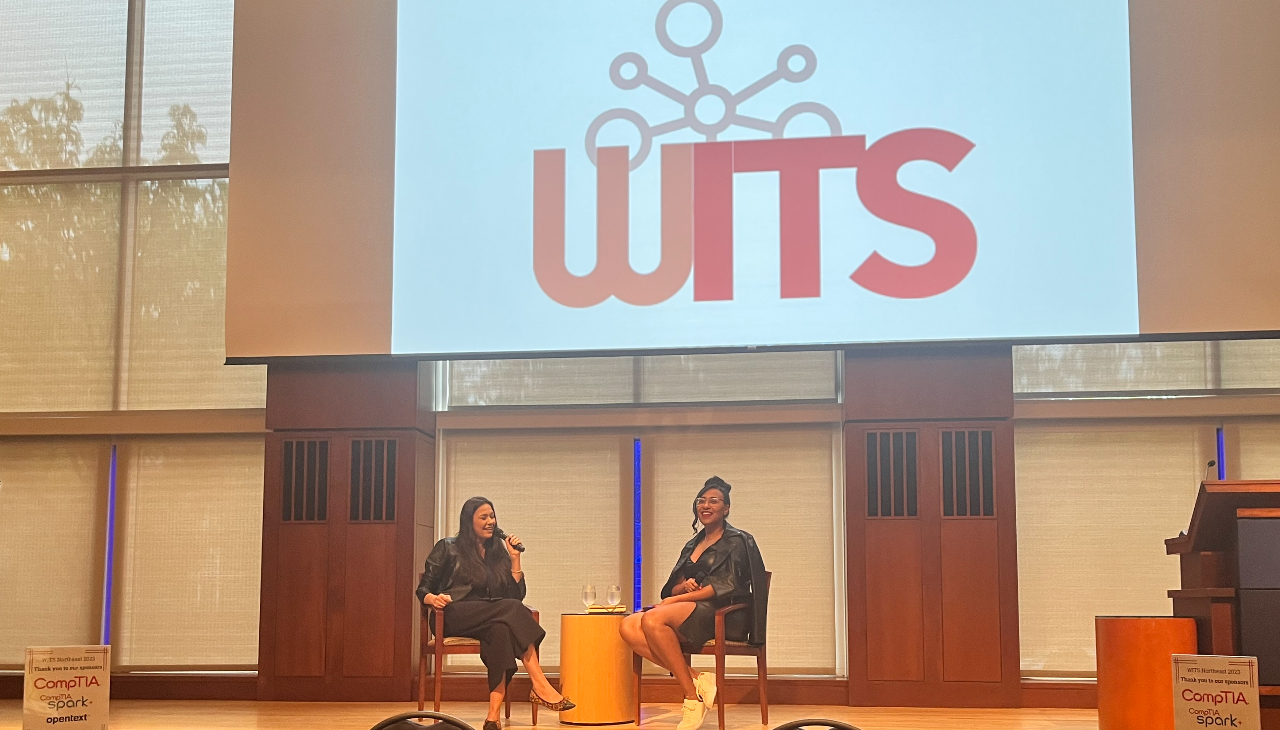
Building equitable teams leads to fairness in the workplace
How can equity be more prevalent in the workplace? That was a question discussed during the Women in Tech Summit.
Kicking off Day 1 of the two-day 2023 Northeast Women in Tech Summit on April 27 was a panel featuring two of the region’s biggest advocates for tech diversity and entrepreneurship.
They are Shannon Morales, founder of Tribaja and Diversitech; and Isabelle Kent, CEO of Philly Startup Leaders.
In a conversation between the two women leaders, a variety of topics were discussed, including their challenges, the importance of DE&I, funding for startups, building a support network, and many others.
A Career Transition & Challenges
When Morales graduated from college and began thinking about what career path she wanted to enter, the first thing she did was turn to Google to search for which industries would make her the most money.
That Google search landed her in the finance industry, where she spent the first five years of her professional career.
However, she found that the work environment within many corporate structures was often toxic.
In her experience, she didn’t always see the her hard work lead to success. On the contrary, she often felt she was being stifled and not allowed to be her best self.
That didn’t sit well with Morales.
“There was not a lot of cases built for professionals like me — people of color — and so I wanted to change that, I wanted to find better ways to connect professionals like myself and more inclusive work environments,” said Morales.
Morales understood that her challenges likely weren’t unique to her, and sought to create an environment where others with similar challenges can connect and help each other navigate those challenges.
That’s exactly what she has been able to do since launching Tribaja, a marketplace and community provider supported professionals who are interested in tech careers.
DE&I As a Full-Time Job
In 2020, many companies, organizations, and institutions began taking a more focused effort on addressing diversity, equity and inclusion within the workplace.
That effort led to the creation of many diversity-related positions.
However, three years later, a lot of those positions have disappeared and the discussion has dissipated.
“I was afraid of this, being someone who this is my full time job,” said Morales.
Over the years, she has often seen DE&I and HR positions be the most heavily impacted positions when it comes to budget cuts.
It’s problematic, “because decreasing the amount of support that your employees are receiving shows,” added Morales.
“Retention rates are ultimately going to hurt because people don’t want to stay in an organization where they don’t feel included and feel supported.”
To this end, Kent noted that DE&I should be integrated within a company culture and workflow.
RELATED CONTENT
A Leadership Gap?
While many organizations did step up and support increasing DE&I efforts, little changed in the venture space.
Diverse founders have always hovered within the 5% or less of the venture capital funding.
“Ultimately, we barely saw the needle move from a leadership perspective,” said Kent.
She referenced a study by the World Economic Forum in 2015 that indicated that a leadership gap is one of the biggest challenges facing the U.S. workforce.
The Harvard Business Review pushed back against that notion and said the leaders were in just about every department.
“The issue is that we’re not cultivating that talent and developing the skill sets and creating pathways into leadership,” Kent said.
She continued, “And we know that leadership and that lack of representation on that level is one of the reasons why women, people of color and other underrepresented and underserved communities are not getting represented because often leaders hire and look for those who remind them of themselves.”
Building A New Generation of Leaders
If there is one thing that Morales believes an effective leader needs, it’s the desire to be continuous learners.
With the mass layouts that have been handed out recently in tech and other industries, one thing is clear.
“We need to make sure that we are arming ourselves with the best important of what is high demand right now,” said Morales. “What can be getting access to make sure you’re ahead of the curve and not being a part of these situations where people are just getting laid off.”
Most mid-career individuals have transferrable skills that allow them to transition relatively seamlessly into different industries than the one they were laid off from.
“We shouldn’t be pigeonholing ourselves,” added Morales.
Overall, some key pieces of advice that both Morales and Kent agree on are to be unafraid to leverage your skills, learn the art of negotiation, and be mindful of what you want out of life and the steps to get there.











LEAVE A COMMENT:
Join the discussion! Leave a comment.